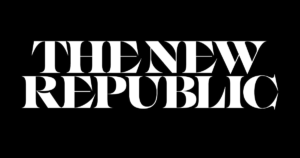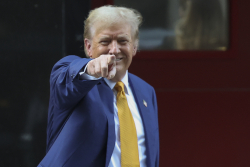
Nixon did make an inflammatory speech attacking the 1968 turmoil on the Columbia University campus as the beginning of a “revolutionary struggle to seize the universities.” Nixon also ran a series of TV ads decrying “the problem of order in the United States,” but almost all of the imagery appears to have been taken from the urban rioting after the assassination of Martin Luther King. But Nixon, who ran a clever campaign, also broadcast a TV ad with a rock-and-roll soundtrack in which the excessively square GOP nominee solemnly declared, “American youth today has its fringes but that’s part of the greatness of our country. I have great faith in American youth.”
The violence at the Chicago convention was devastating for Humphrey. But it had its roots in Lyndon Johnson’s decision, when he assumed he would be the nominee, to hold the convention in Chicago because he believed Mayor Richard Daley could keep order. After King’s assassination, Daley had ordered the Chicago police to “shoot arsonists and looters—arsonists to kill and looters to maim and detain.”
Small wonder when more than 10,000 protesters arrived in Chicago (including some violence-prone members of the leftwing sect, the Weathermen) the result was a police riot. Three veteran British journalists wrote a chronicle of the 1968 campaign called An American Melodrama. The authors concluded that the ferocity of the Chicago police was far worse than anything that any of them had observed covering riots in Paris, Belfast, Berlin, Calcutta and Detroit. What was different in Chicago, they wrote, “was the fact that the police went, quite literally, berserk.” A Gallup Poll, conducted immediately after the convention, captured the dominant law-and-order mood as 56 percent of Americans approved of the way that the Chicago police had dealt with protesters.




